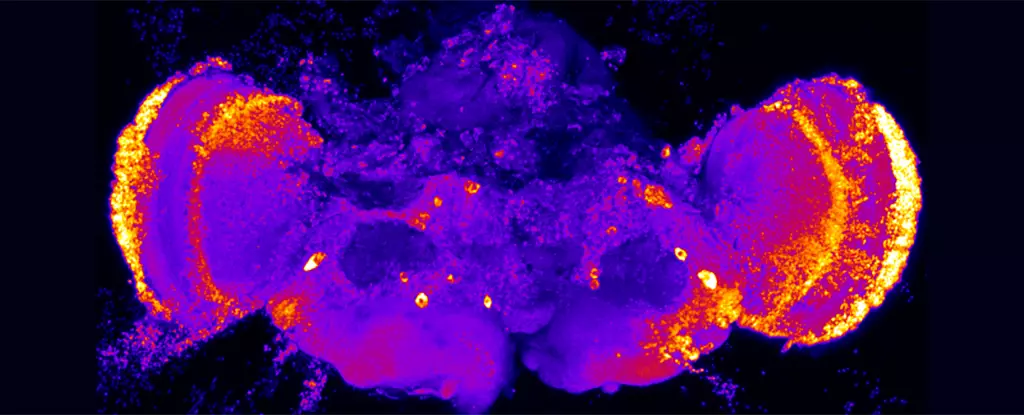In a recent study conducted by researchers from Pennsylvania State University, proteins known as heparan sulfate-modified proteoglycans (HSPGs) have emerged as potential targets for drug therapy in combating Alzheimer’s disease. These proteins, which play a vital role in regulating cell growth and interaction, have previously been connected to neurodegenerative disorders, prompting further investigation.
The study highlights the significance of focusing on early cellular deficits in Alzheimer’s disease treatment rather than just addressing the late-stage symptoms. By targeting HSPGs, researchers hope to intervene in key processes like autophagy, cell energy production, and lipid accumulation, which are disrupted in dementia. Modifying the function of HSPGs has shown promising results in cell repair and neuron protection, suggesting a potential pathway for developing new treatments.
Through experiments on genetically modified fruit flies, mouse brain cells, and human cell tissue, researchers observed the impact of HSPG disruption on various cellular functions. By inhibiting the production of heparan sulfate chains, a significant number of genes associated with Alzheimer’s progression were affected. The study suggests that HSPGs may have a role in different stages of the disease, opening up new possibilities for intervention strategies.
Alzheimer’s disease poses a daunting challenge for researchers due to its complex nature and uncertain triggers. As the leading cause of dementia worldwide, Alzheimer’s affects millions of individuals, with projections indicating a rise in prevalence in the coming years. Understanding the early cellular changes in Alzheimer’s and other neurodegenerative diseases like Parkinson’s and ALS is crucial for advancing treatment options.
While the study on HSPGs represents a promising step forward in Alzheimer’s research, it is important to recognize that further investigations and clinical trials are necessary to translate these findings into effective therapies. Targeting the enzymes involved in heparan sulfate production could hold the key to halting neurodegeneration in patients, offering new hope for combating the devastating effects of Alzheimer’s disease.
The study on HSPGs sheds light on a novel approach to tackling Alzheimer’s disease by targeting specific cellular mechanisms. By unraveling the role of these proteins in disease progression, researchers are paving the way for innovative treatment strategies that could potentially change the landscape of Alzheimer’s care. Continued research and collaboration in this field are essential to realizing the full therapeutic potential of HSPGs in combating neurodegenerative disorders.


Leave a Reply